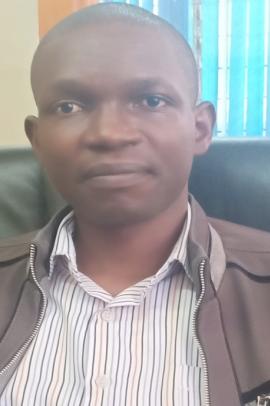
Benson Onyango Ojwang (MSc. EEE, BSc. EEE, Nairobi) is a registered electrical Graduate Engineer by Engineers Board of Kenya (EBK). He is also a licensed electrician by Energy and Petroleum Regulatory Authority (EPRA). Currently Benson is a Graduate Assistant in the Department of Electrical and Information Engineering, University of Nairobi. He specializes in Power Systems and Electrical Machines besides Control Systems. Benson is also an IEEE Young Professional Member. He is the co-chair for IAS/PES IEEE PowerAfrica Conference 2020. He has published many papers with IEEE Xplore and IJSER.
As a trainee engineer, he has worked with Crown Plaza, in the Electrical Department, and Radio Africa Group, in the Broadcast Department. He has also worked as volunteer teacher in California Secondary School; teaching Physics, Chemistry and Mathematics.
As part of community service, Benson is a co-founder and board member of Juhudi Kenya – a non-profit non-governmental organization mandated with eradication of bedbugs in slums and learning institutions. Towards COVID-19 pandemic, he worked with a team from the University of Nairobi to design a ventilator prototype. The production model of the ventilator is on-going.
His research interests include renewable energy generation, power system operation and control, distributed generation and grid integration.
To advance in electrical engineering field practices, Benson has worked with contractors in solarization of community borehole pumping systems and solar street lighting
Project Summary
DEVELOPMENT OF AN ECONOMIC AND ENVIRONMENTAL DECISION MAKING MODEL FOR OPTIMAL SOLAR AND WIND ENERGY UTILIZATION
Since the emergence of renewable energy, Renewable Energy Technology (RET) has been considered harmless, clean and free. On the other hand, non-renewable energy sources are perceived as the only hostile technology to the environment without focusing on the detrimental effect of Renewable Energy Sources (RES). Many people have continued to use this ‘harmless’ technology without considering the long term environmental and economic impacts. It is, therefore, important to evaluate the environmental impacts of solar and wind technologies and decide on the net environmental and economic benefit before utilization. This will ensure optimal utilization while maintaining the quality and availability of natural resources for current and future generations. For a suitable decision from the model, there is need to interrelate social, health, ecosystem, emissions and resource cost effects of solar and wind technology to the environmental and economic impacts. This will improve the judgment on whether or not to deploy the technology depending on the net benefit to the community. In light of the above, in this thesis an Economic-Environmental Decision Making Model (EEDMM) for optimal utilization of solar and wind energy is developed. The simulated results show that solar PV causes reduction in Ozone depletion by 30.15% while wind reduces it by 81.86% as compared to conventional sources. In conclusion, the developed Economic and Environmental Decision Making Model (EEDMM) is useful in providing prior advice to the users on whether or not the utilization of the solar and wind is achieved. The decisions are made from the EEDMM chart.
Research Supervisors
Dr. Peter Moses Musau
Dr. Abraham Mutunga Nyete
